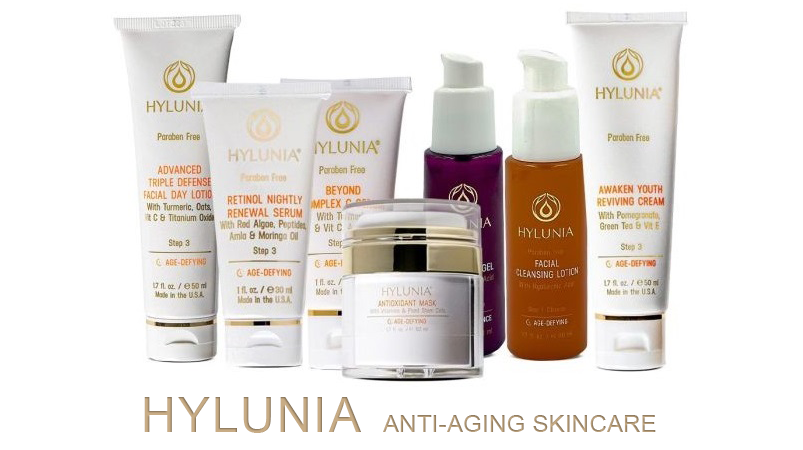
Fine lines and deep wrinkles are natural parts of aging, but the way we approach them can make all the difference in how our skin looks and feels over time. Not all anti-aging products are created equal, and knowing what to use—and when—can help you make the most of each phase. .
Contents
Understanding the Difference Between Fine Lines and Wrinkles
At first glance, fine lines and wrinkles might look similar. But understanding their differences helps you choose the right products for each stage. Fine lines are typically the first signs of aging, shallow and often appearing around the eyes and mouth. Wrinkles, on the other hand, are deeper and usually form as skin loses elasticity over time.
What Causes Fine Lines?
Fine lines are often a result of repetitive facial movements, such as smiling, frowning, or squinting. They’re also exacerbated by environmental factors like sun exposure, pollution, and lifestyle habits (think smoking or poor hydration). At this stage, the skin’s collagen production may begin to slow, but it’s still largely intact, making fine lines relatively easy to address.
How Wrinkles Form
Wrinkles, on the other hand, are deeper and result from more significant collagen and elastin breakdown. As skin ages, it becomes thinner and less able to bounce back, causing lines to become more pronounced. These deeper wrinkles are tougher to treat but can still benefit greatly from targeted skincare.
Best Ingredients for Fine Lines
If you’re noticing fine lines, think of it as an opportunity to reinforce and protect your skin. Lightweight, hydrating ingredients work wonders at this stage, helping keep skin plump and resilient.
Hyaluronic Acid: The Hydration Hero
Hyaluronic acid is a moisture magnet, drawing water to the skin and making it look fuller. Fine lines can appear more noticeable when skin is dehydrated, so a daily dose of hyaluronic acid keeps skin looking fresh and plump.
Antioxidants for Protection
Ingredients like vitamin C, green tea, and niacinamide help fight off free radicals, which can accelerate the aging process. By adding antioxidants to your routine, you’re essentially putting up a shield to keep your skin safe from environmental damage.
Peptides to Support Collagen
Peptides are the building blocks of proteins like collagen and elastin. By adding a peptide serum or moisturizer, you can help maintain your skin’s structure, making fine lines less noticeable.
Targeting Deeper Wrinkles: Potent Ingredients and Treatments
When wrinkles have settled in, they need a bit more than hydration. Stronger ingredients like retinoids, retinol, and specific peptides can work at a deeper level to boost collagen and renew skin.
Retinoids and Retinol: Collagen Boosters
Retinoids and retinol are vitamin A derivatives that increase cell turnover and encourage collagen production. They’re considered one of the most effective treatments for wrinkles, although they can be a bit strong for sensitive skin. Start slowly and use only a small amount to help your skin adjust.
Growth Factors
Growth factors are proteins that stimulate cell growth, which can help repair damaged skin and reduce the appearance of wrinkles. They’re often found in serums and are ideal for mature skin looking to regain some of its elasticity and firmness.
AHAs and BHAs for Gentle Exfoliation
Alpha hydroxy acids (AHAs) and beta hydroxy acids (BHAs) exfoliate the skin’s surface, removing dead skin cells that can make wrinkles appear more pronounced. They’re particularly useful for mature skin, which tends to accumulate dead skin cells, giving the face a dull look.
Building a Routine for Fine Lines
For those dealing with early signs of aging, a gentle, preventative routine is key. Fine lines don’t require heavy-duty treatments, and overdoing it can sometimes do more harm than good. Here’s how to set up a simple, effective routine for fine lines:
- Cleanser: Use a gentle, hydrating cleanser that doesn’t strip the skin.
- Antioxidant Serum: A vitamin C or niacinamide serum will help protect skin from environmental damage.
- Moisturizer: A lightweight moisturizer with hyaluronic acid will keep skin plump and hydrated.
- Sunscreen: SPF is non-negotiable. Fine lines are often due to sun exposure, so daily SPF 30 or higher helps prevent further damage.
This routine focuses on protection and hydration, keeping skin healthy and slowing down the development of wrinkles.
Advanced Routine for Deep Wrinkles
Deep wrinkles require a bit more attention and stronger ingredients. The goal here is to stimulate collagen production and improve skin elasticity. Here’s a routine suited for addressing deeper wrinkles:
- Cleanser: A gentle, hydrating cleanser to avoid over-drying the skin.
- Exfoliator: Use a mild AHA or BHA exfoliant a few times a week to renew skin.
- Retinoid or Retinol: Apply a retinoid at night to encourage cell turnover and collagen growth.
- Peptide Serum: Peptides support collagen production and are great for mature skin.
- Thicker Moisturizer: Use a heavier moisturizer at night to lock in moisture and strengthen the skin barrier.
This routine provides the intensive support that aging skin needs, with ingredients that work at a cellular level to restore structure and firmness.
Top Tips for Every Stage of Aging
Regardless of your age or stage of wrinkles, certain practices will help you get the best results from your anti-aging products.
Consistency is Key
Using anti-aging products regularly is essential. Think of it like working out—occasional efforts won’t yield lasting results. Pick a routine and stick with it for at least a few months before expecting significant changes.
Sun Protection Above All
UV rays are one of the biggest contributors to skin aging. Even the best anti-aging products won’t be effective if you don’t protect your skin from the sun. Sunscreen every day, rain or shine, is the best preventative measure you can take.
Don’t Skip Hydration
Even if you’re focused on combating wrinkles, hydration is your skin’s best friend. Moisturized skin looks fuller and healthier, which minimizes the appearance of lines and wrinkles. Choose products with hydrating ingredients like glycerin, hyaluronic acid, and ceramides.
When to Consider Professional Treatments
For those with deeper wrinkles or who want faster results, professional treatments like chemical peels, microneedling, and laser therapy can complement your skincare routine. These treatments help promote collagen production and offer more intense exfoliation, giving skin a smoother, more youthful appearance.
If you’re not sure which treatment is right for you, consult a dermatologist who can guide you on options based on your skin type and goals. Professional treatments can be a powerful ally, especially when combined with a solid skincare routine.

